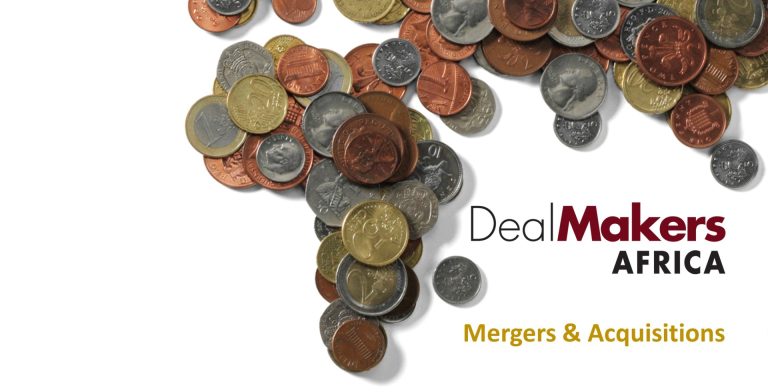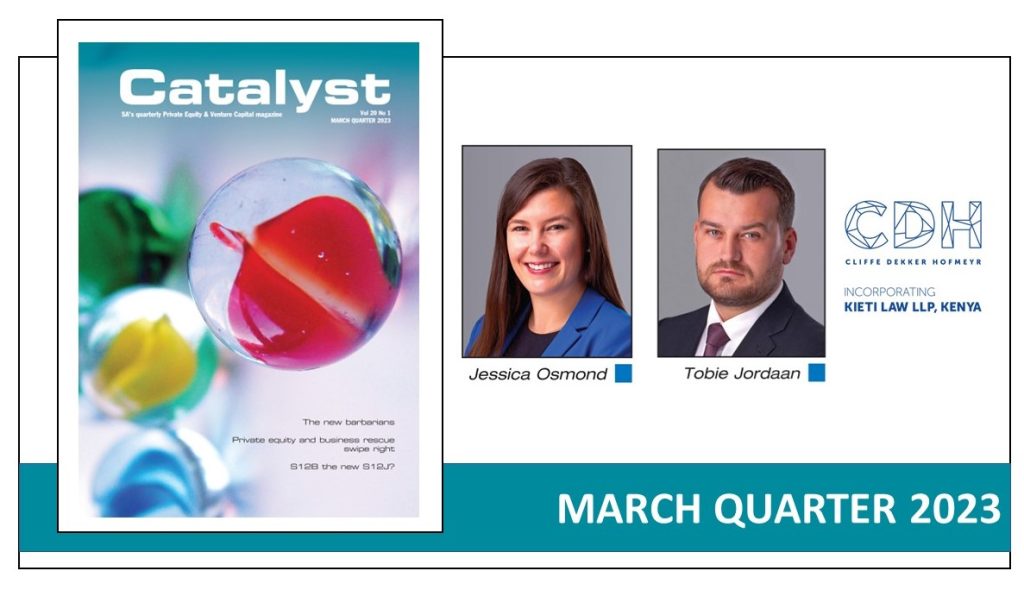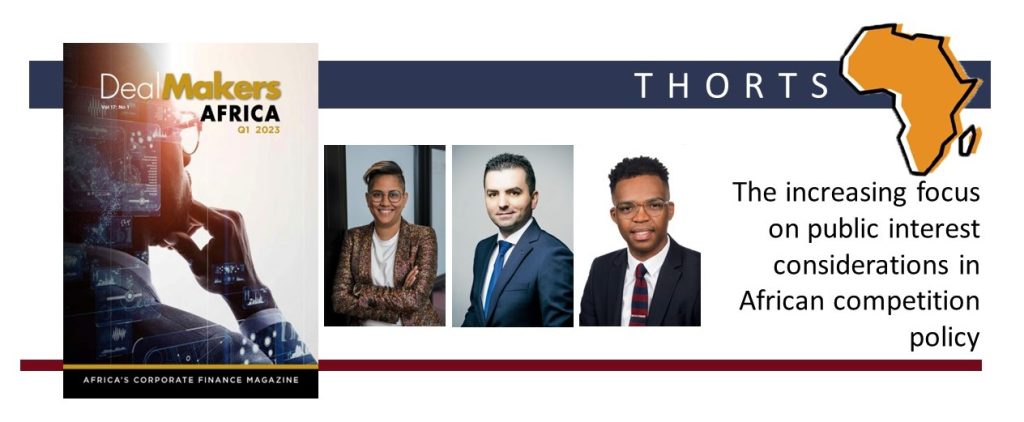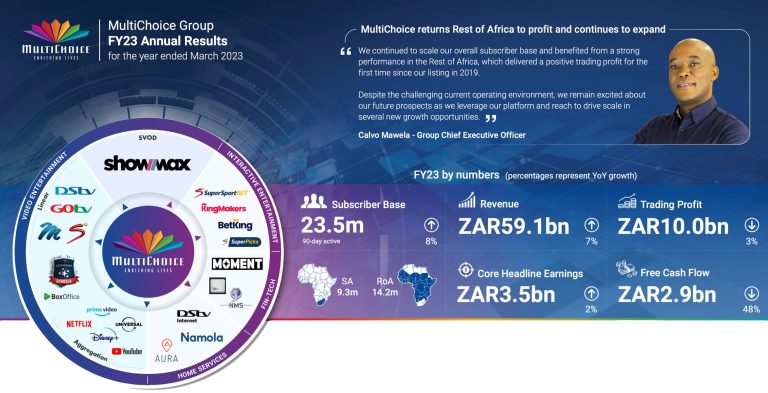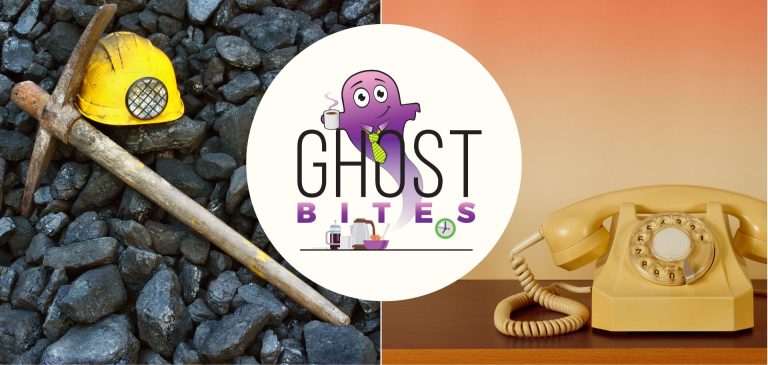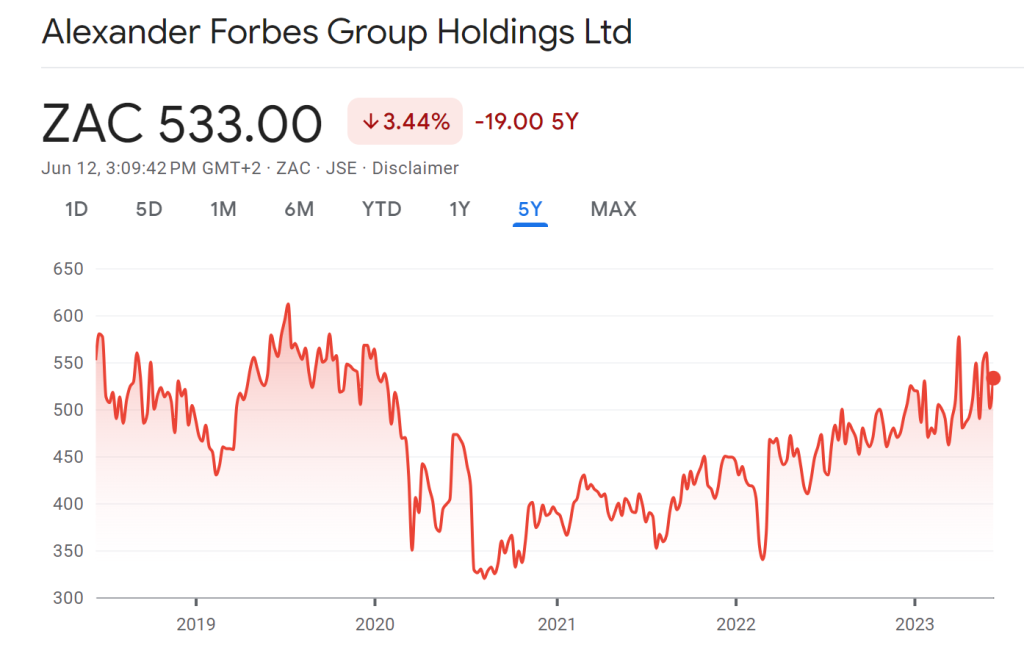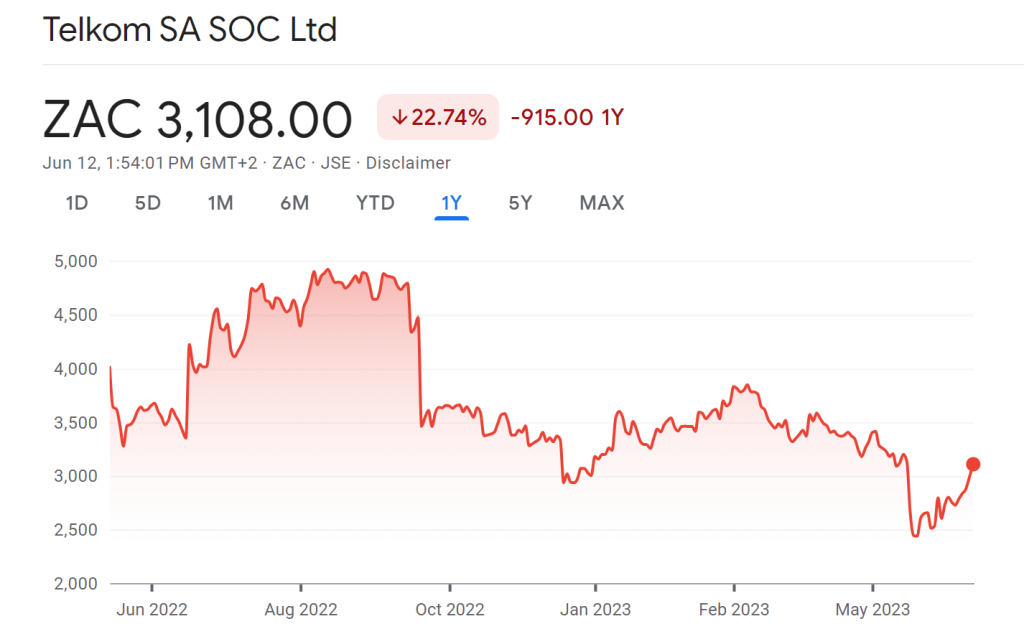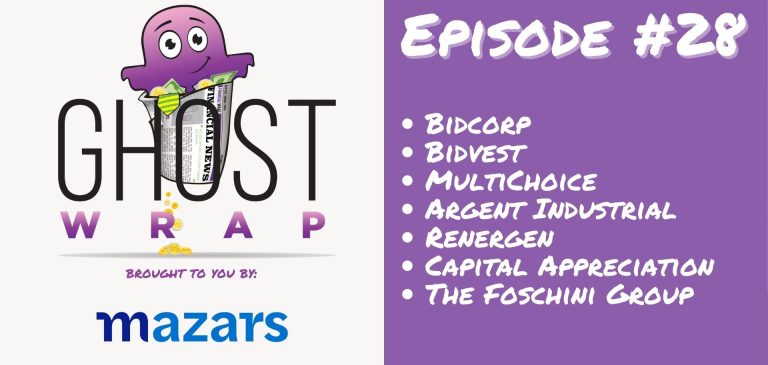A closer look at AEEI (JSE: AEE)
There’s not going to be much left after AYO is unbundled
African Equity Empowerment Investments (AEEI) reported large losses for the six months to February 2023, both from continuing and discontinued operations.
With AYO Technology due to be unbundled, the next largest segment is Premier Fishing. After that, there’s very little to talk about in the group. For example, the events and tourism “segment” generates just R7.3 million in revenue of which only R4.7 million is external, with a loss of R2.8 million.
Speaking of fishing, that segment only managed a profit of R12.4 million off revenue of R223 million.
The company points to the impairment in the investment in BT Communications Services South Africa as the major driver of losses in this period. Whilst that may be true for the basic loss per share, the reality is that the group is marginal at best when continuing operations are viewed overall.
Attacq on track for FY23 guidance (JSE: ATT)
A pre-close update presentation has been made available
As we head into the final couple of weeks of the year ending 30 June 2023, Attacq has released a pre-close presentation (available here) that talks to the company being on track to deliver growth in distributable income per share of between 8% and 10%.
Interestingly, Mall of Africa is the second highest growth in trading density over the 12 months to April (take note of the period here), with growth of 19.2%. Only Waterfall Corner posted higher growth of 20%.
On the balance sheet, weighted average cost of debt has increased from 9.4% to 10.0% but total borrowings have come down slightly.
Attacq will be presenting on Unlock the Stock on 22 June (alongside Tharisa – so you get to learn about two companies at once). Thanks to our brand partner A2X, you can attend for free by registering here>>>
Brait’s latest NAV per share is R7.06 (JSE: BAT)
The share price of R3.45 is a discount of over 50% to NAV per share
Brait has released results for the year ended March 2023. It’s been an important period for the group that finally saw the listing of Premier, the FMCG business that has been posting solid results. This raised R3.6 billion for Brait in addition to the R924 million pre-listing dividend.
Aside from the stake in Premier that can effectively be bought at a discount through Brait, shareholders will be focusing on Virgin Active and to a far lesser extent, New Look. This is because Premier is now only 21% of Brait’s total assets.
Virgin Active grew membership by 14% over the past 12 months. The group is still valued on a 9x two-year forward EBITDA multiple, which I feel is a high multiple that is partly responsible for the discount to NAV that the group trades at. As a massive fan of my local Kauai, I’m not surprised to see that Real Foods is doing well within this segment.
It’s a tough gig selling gym memberships in South Africa, with sales over the six months to March of 127k but net membership growth of just 34k. Those new year resolutions didn’t stick around long. Attrition was also high in the UK, with Italy showing a greater retention of members. In the Mediterranean, I guess summer bodies really are made in winter. What’s Italian for “boet” again?
The carrying value of Brait’s investment is just over R9 billion, up from almost R8.3 billion and contributing 53% of Brait’s total assets.
UK fashion retailer New Look is 5% of Brait’s total assets. Revenue increased by 2.3% and EBITDA by a whopping 68%, so that’s encouraging. After investing further in the business during the year to help it reduce debt, the carrying value of the investment is R931 million.
Although there was substantial cash on the balance sheet at the reporting date, R2.8 billion of the R3.6 billion cash balance has been used since year-end to settle debt and invest further into Virgin Active.
Right at the bottom of the announcement, you’ll find perhaps the biggest source of the discount to NAV: the management contract with The Rohatyn Group (who bought Ethos Private Equity). At a cost of R65 million this year and R50 million the following year, shareholders of Brait are losing out to an expensive management company structure that appears to cost a lot more than a normal executive management team would cost.
Delta sold properties worth R209 million this year (JSE: DLT)
More disposals were achieved after year-end
Delta Property Fund has released results for the year ended February 2023. The focus is on recycling capital and paying down debt, which is what happens when your loan-to-value has blown out to 61.4% despite best efforts to reduce debt. Debt was already problematic, with fair value decreases in the portfolio causing this all-important ratio to worsen.
The trouble in the underlying portfolio isn’t over, with funds from operations per share dropping sharply from 36.91 cents to 11.12 cents. A major driver is negative rental reversions with government tenants. When costs are going up both operationally and financially due to higher interest rates, property funds cannot afford a drop in rentals.
There is obviously no dividend, with the group in a race against time to meet debt covenants and appease its bankers during facility negotiations.
Ellies needs money (JSE: ELI)
A fully underwritten rights offer at a fat discount is the order of the day
Ellies is in the process of acquiring the Bundu Power business, a major step into alternative energy that has been necessitated by ongoing challenges in the rest of the Ellies group.
The deal is worth R202.6 million, requiring an initial payment of R72.6 million and three earn-out payments from 2023 to 2025.
To fund the initial payment and the earn-out, Ellies needs to execute a rights offer for R120 million. They will issue new shares at R0.07 per share, well below the current market price of R0.11 per share. The raise is fully underwritten by Mazi Asset Management and Imvula Education Empowerment Trust, so this is a classic case of strategic investors increasing their stake through a discounted rights offer.
They will each receive a fee of 1.5% of the value of shares they subscribe for. That’s a better outcome for Ellies than the market norm, which sees the underwriter paid regardless of how many shares they take.
I must note the related party angle here, with the underwriting agreement with Imvula including reference to future paid advisory services to Ellies on terms that haven’t been agreed as of yet. When the terms are agreed, the JSE’s related party rules will be applied.
enX releases a fairly detailed cautionary (JSE: ENX)
This is a rare and welcome departure from the market norm
When most JSE-listed companies release a cautionary announcement, they give barely any details at all. By the time you’re done reading it, you can’t be sure whether they are selling a business or simply redecorating the CEO’s office.
Not so at enX, with the company noting that it is in discussions regarding a possible sale of its interest in Eqstra Investment Holdings. This would be a Category 1 transaction, which means a detailed circular and shareholder approval would be required.
As always, there’s no guarantee of a deal being announced.
Ethos Capital’s NAV is inching forwards (JSE: EPS)
Progress is slow and painful
In the nine months to 31 March 2023, Ethos Capital could only increase its net asset value (NAV) per share by 1.4% to R8.61. This is based on the Brait share price. If they use the Brait NAV per share instead, it’s actually fallen by 3% to R10.34.
At least the unlisted portfolio is up year-to-date, with a 10% return thanks to valuation gains in Optasia, Gammatek and Synerlytic. Those are all very Star Trek sounding names.
The only thing being beamed up by Ethos Capital is management fees to The Rohatyn Group, with shareholders watching the NAV move gently sideways.
Glencore is never far from a deal (JSE: GLN)
While we were all watching Teck, Glencore has done an unrelated deal for Viterra
When it comes to companies that love a bit of swashbuckling M&A, Glencore has to be near the top of the list. With the recent focus on Teck in Canada and Glencore’s ongoing attempts to work a deal, the latest transaction has nothing to do with Teck or even with coal.
Instead, Glencore has agreed to sell its approximately 50% stake in Viterra in exchange for $1 billion cash and $3.1 billion in Bunge Limited stock. This gives Glencore a 15% stake in the merged business, which is a diversified global agribusiness solutions company.
Glencore has agreed not to sell any of the stock in Bunge for 12 months and will thereafter only sell the shares in an orderly fashion.
MultiChoice gives full details on its results (JSE: MCG)
I’ve been really looking forward to this one
MultiChoice is a fascinating business, sitting perfectly at the point where consumer preferences and technologies collide. With a general shift towards streaming, I love working through these numbers to see how MultiChoice is navigating this environment.
There are 14.2 million households in the Rest of Africa and 9.3 million households in South Africa that subscribe to MultiChoice. That’s still a huge base.
Group revenue increased by 7%, with Rest of Africa delivering a 25% increase in subscription revenue. I was impressed by a 7% increase in advertising revenue, though you must remember that this period included the mother of all sporting events: the FIFA World Cup.
Earnings were weaker overall, with trading profit down 3% and South African margins contracting to 24% from 31% in the prior year. Although core HEPS was up 2%, I would interpret this number with great caution as it doesn’t include the forex pain that took the group into a heavily loss-making position.
With the South African trading profit down by 23% and forex as an ever-present risk in Rest of Africa, I wasn’t surprised to see the share price continue its negative slide. This is particularly true in the light of no dividend being declared as the group invests heavily in Showmax and other initiatives.
To read more about this result and the group’s official statements, check out this article>>>
Resilient flags higher rates in its pre-close update (JSE: RES)
As new debt facilities come in, the average finance cost will go up
In a pre-close update for the six months to June 2023, Resilient spends a lot of time talking about the investment in energy and particularly solar. Annoyingly but also predictably, local authorities have been slow to implement the amended regulations announced by national government earlier this year.
Nevertheless, Resilient has pushed on. This has helped during a tough period of load shedding, with comparable sales growth of 2.9% for the four months to April.
The distribution for this interim period is expected to be in line with the second half of last year. There are risks to this distribution in the near-term, driven by higher funding costs coming through the system as debt is refinanced in a higher rate environment.
Telkomasaurus releases results (JSE: TKG)
Our local telecommunications dinosaur saw HEPS drop by 76.6%
The year ended March won’t go into the happy memory box for Telkom or its shareholders, with revenue up by just 0.9% and EBITDA taking a 19.8% knock. This puts EBITDA margin at 22.1%, way below where the more modern telecoms businesses are playing.
Headline earnings per share (HEPS) fell by 76.6% to 134.6 cents, which puts Telkom on a very high Price/Earnings multiple of 22.8x. The trick here is that the share price isn’t trading with reference to the earnings at the moment, as Telkom is ripe for corporate actions and the cheeky offer by the ex-CEO is just the latest example of a vulture circling this carcass.
There are elements of the Telkom business that are modern of course, like Openserve’s fibre products. What Telkom calls “next-generation” products are actually current generation products, contributing nearly 70% of Openserve’s revenue. But with a rapid decline in legacy products, the transition simply isn’t happening quickly enough, even though Openserve fibre now passes over 1 million homes.
It’s hard not to chuckle at Telkom’s reference to a “planned decline in traditional copper-based voice services” as though this is Telkom’s choice rather than a consumer trend. Either way, those services are 5.8% of external revenues in Telkom Consumer.
Even in the Mobile business, revenue only grew by 1.8% despite a 7.8% expansion in the customer base. It doesn’t help bringing more customers into the fold if they aren’t growing revenue.
In BCX, revenue was flat. Again, it’s a race against time to grow the IT business while the Converged Communications business drops as customers migrate to newer technologies.
Masts and towers business, Swiftnet, grew revenue by a marginal 0.9% and EBITDA margin came in at 68.8%. This is one of the parts of the business that always gets talked about for M&A activity, with the other being fibre.
Although it has no cash impact, an impairment of over R13 billion to Openserve and Telkom Consumer sends a message about the underlying Excel models that forecast the financial performance of these business units. There have been significant drops in headcount, with those benefits only coming through in FY24.
A very real cash impact is negative free cash flow of R2.7 billion, with mobile post-paid sales (contracts) putting cash under pressure. Telkom has to buy the phones and then sell them on contract, collecting cash over a period of time. In reality, this wouldn’t be a problem if the business was healthy.
The dividend has been postponed once again. You can’t pay a dividend when your cash flow is being smashed.
Little bites:
- Director dealings:
- The CEO of Spear REIT (JSE: SEA) is still buying shares for himself and his family, this time to the value of roughly R105k
- With the reverse takeover of Langpan Mining behind it, Mantengu Mining (JSE: MTU) has released a trading statement for the year ended February 2023. The group headline loss per share is expected to be between -11.40 and -12.60 cents.
- The liquidation application brought by a shareholder of Afristrat Investment Holdings (JSE: ATI) against the company was heard in the High Court on 8 and 9 June. Judgement has been reserved for the time being.
- If you are a WBHO (JSE: WBO) shareholder, then take note that the company has made the Avior Conference presentation available at this link>>>


